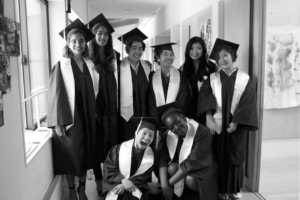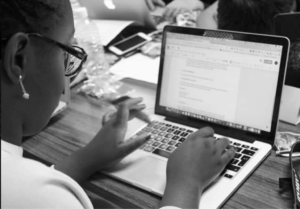
“The most influential of all educational factors is the conversation in a child’s home.” William Temple
The landscape of education is rapidly evolving, with globalization driving increased competition among students on a global scale. As a result, parents are feeling the pressure to prepare their children to excel academically and competitively. Parenting in the context of global education competition requires a delicate balance between nurturing academic prowess and fostering holistic growth. While academic achievement remains a cornerstone of success, parents are recognizing the importance of equipping their children with a diverse set of skills and experiences to thrive in an increasingly interconnected world. As such, parental strategies have evolved to encompass a broader spectrum of approaches aimed at maximizing children’s potential and ensuring their success in the competitive global arena.
This rise in global education competition has led to a phenomenon where parents are enrolling their children in a myriad of extracurricular activities, driven by high expectations and societal pressures. In this blog article, we’ll delve into the complexities of parental expectations and societal pressures, exploring the impacts on both parents and students, as well as strategies for navigating this challenging terrain.
The Rise of Global Education Competition:
Globalization has transformed the education sector, creating a hyper-competitive environment where students are not only competing locally but also internationally. With advancements in technology and communication, access to education resources and opportunities has become more accessible, leading to increased competition among students from diverse backgrounds. As a result, parents feel compelled to equip their children with a broad range of skills and experiences to stay ahead in the global education race.
Parental Expectations:
Parents play a crucial role in shaping their children’s academic and extracurricular pursuits. However, with the rise of global education competition, parental expectations have soared to new heights. Many parents aspire for their children to excel academically, participate in numerous extracurricular activities, and gain admission to prestigious universities. This pressure to succeed can place immense stress on both parents and students, leading to feelings of inadequacy and anxiety.
Therefore, fostering a growth mindset is essential for nurturing resilience and perseverance in the face of academic challenges. Parents can encourage their children to embrace setbacks as opportunities for growth, emphasizing the importance of effort and perseverance in achieving success. By praising their children’s efforts and progress rather than solely focusing on outcomes, parents can cultivate a positive attitude towards learning and foster a sense of self-efficacy in their children.
Furthermore, effective communication and support are essential components of parental strategies for nurturing academic excellence. Creating an open and supportive environment where children feel comfortable expressing their thoughts, concerns, and aspirations is crucial for fostering a healthy parent-child relationship. By actively listening to their children’s needs and providing encouragement and guidance, parents can empower their children to overcome challenges and reach their full potential.
Societal Pressure:
One key aspect of effective parental strategies is the cultivation of efficient learning habits and study techniques. Parents play a critical role in instilling discipline, organization, and time management skills in their children, laying the foundation for academic success. By establishing consistent routines, setting realistic goals, and providing guidance on effective study methods, parents can empower their children to become efficient learners capable of navigating the demands of a rigorous academic curriculum.
In addition to parental expectations, societal pressures also contribute to the intensification of global education competition. In many cultures, academic success is highly valued, and students are often measured by their achievements in school and extracurricular activities. This societal emphasis on academic excellence can fuel a culture of competitiveness, where students feel the need to constantly outperform their peers to meet societal expectations and gain recognition.
Impacts on Parents and Students:
In addition to academic excellence, parents are increasingly recognizing the value of extracurricular activities in enhancing children’s overall development. From sports and music to art and community service, extracurricular pursuits offer valuable opportunities for children to explore their interests, develop new skills, and cultivate leadership qualities. By encouraging their children to pursue diverse interests and passions, parents can foster a well-rounded and adaptable skill set that extends beyond the confines of the classroom.
Meanwhile, the pressure to excel in academics and extracurricular activities can take a toll on both parents and students. Parents may experience feelings of guilt or inadequacy if they perceive their children as falling behind their peers. Similarly, students may struggle with stress, anxiety, and burnout as they strive to meet the high expectations set by their parents and society. Moreover, the relentless pursuit of academic success can overshadow other aspects of a student’s life, such as their mental health, social relationships, and personal interests.
Navigating the Challenges:
While the rise of global education competition presents challenges, there are strategies that parents and students can employ to navigate this complex landscape. Firstly, it’s essential for parents to maintain realistic expectations and prioritize their child’s well-being over academic achievement. Encouraging open communication, fostering a supportive environment, and promoting a healthy work-life balance can help alleviate stress and promote overall well-being. Additionally, parents can empower their children to pursue their passions and interests, allowing them to develop skills and strengths that align with their individual talents and aspirations.
In conclusion, the rise of global education competition has placed significant pressure on parents and students to excel academically and competitively. While parental expectations and societal pressures can be overwhelming, it’s essential for parents to prioritize their child’s well-being and holistic development. By fostering a supportive environment, promoting open communication, and empowering their children to pursue their passions, parents can help navigate the challenges of global education competition while nurturing their children’s growth and success.
As parents strive to empower their children to excel academically and thrive in a competitive world, seeking professional assistance can provide invaluable support in navigating this journey. At Ahanda Global Education, we understand the complexities of modern parenting and are here to offer expert guidance and support. Whether you’re looking to cultivate efficient learning habits, foster a growth mindset, or navigate the intricacies of extracurricular pursuits, our team of experienced coaches is here to help. Contact us today to learn more about how Ahanda Global Education can support you and your child on the path to success.
To learn more:
- Why South Korea’s Latest Cram School Crackdown Is Doomed to Fail | TIME
- How achievement pressure is crushing kids and what to do about it — Harvard Gazette
- Harvard-trained expert: Successful parents encourage kids differently
- World Book Day blasted as ‘competition for rich kids’ as schools change rules
- Young adults today are more perfectionist and report more pressure from their parents than previous generations
- Growing competition for Indian students new report reveals | Times Higher Education
- Students face fierce competition as fewer university courses become available | Admissions | The Guardian
- The Importance of Competition in Learning: A Case for Testwin | LinkedIn



